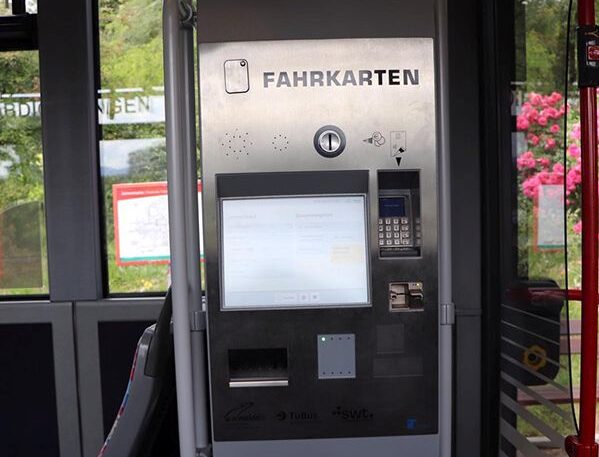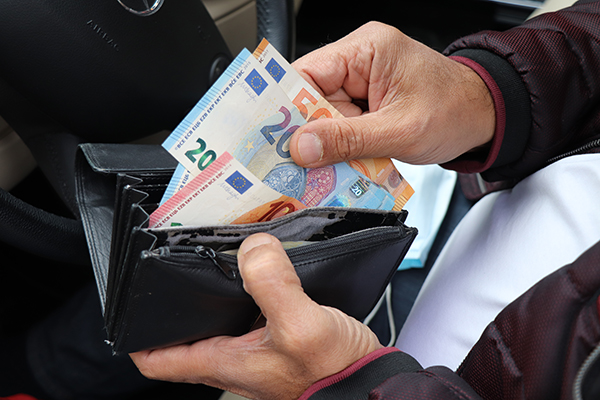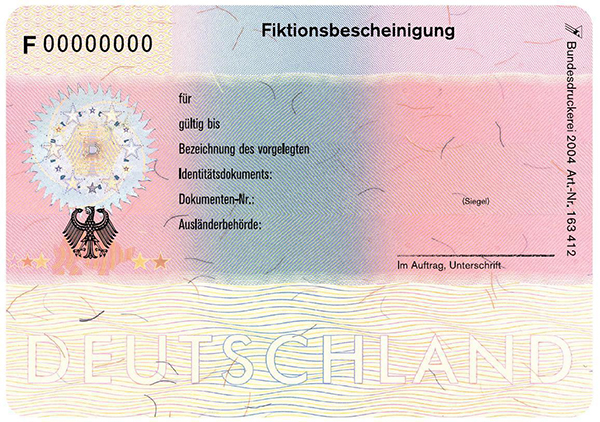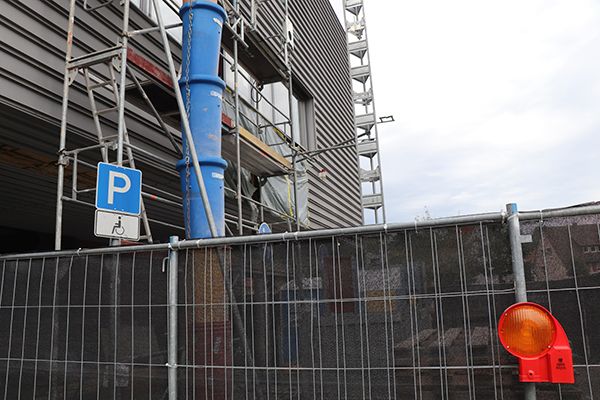By Ute Kaiser Afghans who have lived in Germany for years are very worried. Also, in the District of Tübingen. They experience the situation in the country at the Hindu Kush as chaotic. They see Afghanistan on the brink of economic collapse. And they hear from their relatives or read in the media that most people are impoverished and many feel threatened. “In Afghanistan, there is no freedom, no security, no work, and no freedom of speech,” says M (all names are known to the editors) when describing the situation in the country. In addition, he says, money is worth… Read More
Tag: Germany
Stricter rules at work and on buses and trains
Corona infections continue to rise rapidly. There are hardly any free beds left in the intensive care units. Planned operations have to be postponed. This is one of the reasons why there are once again stricter Corona rules starting on Wednesday, November 24th. Throughout Germany, the new Infection Protection Act stipulates that passengers on buses and trains must be vaccinated, recovered or have a current rapid test (3G). Employees must also be vaccinated, recovered or tested if they want to go to work. This has been decided by the Bundestag and the Bundesrat. A rapid test may only be valid… Read More
Please buy your ticket!
By Mostafa Elyasian Unlike many other countries, where you show your ticket as you board the train or bus, things work differently in Germany. Here, travelers board public transportation without first showing the driver their ticket. Passengers without a monthly ticket must purchase their ticket before boarding, or directly on the vehicle at a ticket machine. While you don’t show your ticket as you board, there are still people checking for tickets. These people board the bus unannounced, show their ID, and check for tickets. If you cannot show a ticket during the check, you must present your ID and… Read More
Tips and help for everyday life in Germany
The brochure “Strengthening the consumer protection skills of refugees. A working aid in simple language” helps refugees to find their way in everyday German consumer life. The topics are briefly explained, followed by practical hints, tips and examples. The brochure also provides checklists, explanatory videos and overviews, often in several languages, e.g. Arabic. Questions on contracts, online shopping, reminders and debt collection agencies, labor and tenancy law, SCHUFA information, banks, loans and insurance are covered. Further information: https://www.verbraucherzentrale.de/sites/default/files/2020-01/AH_Verbraucherschutz_Gefluechtete.pdf tun21081801 “Eine Broschüre der Verbraucherzentrale gibt hilfreiche Tipps in Sachen Banken, Kredite und Versicherungen. Foto: tünews INTERNATIONAL / Mostafa Elyasian.” Latest information… Read More
Fictional Certificate
If you apply for a residence permit or a settlement permit in Germany, the foreigners’ office sometimes gives you a fictional certificate (Fiktionsbescheinigung). This fictional certificate is issued by the immigration office if it has not yet decided on the person’s application. With this fictional certificate, the person’s stay in Germany is considered lawful and permitted. The period for which the foreigners’ office issues this certificate, is the period within which it wants to decide on the actual application. Anyone who has a fictional certificate is allowed to leave and re-enter Germany. tun21072703 Fiktionsbescheinigung. Foto: tünews INTERNATIONAL. Latest information on… Read More
Help not permitted
Work on the assembly line is tough. Many people in Germany work in the low-cost sector, for example in packaging, in the warehouse or in the production of large companies. Those who are employed by a temporary employment agency often have to to jobs like these. Sameer from Iraq is one of them. He reports that many employees suffer from the working conditions. “Without energy drinks, most of them cannot do their work at this pace.“ For bosses, what counts above all is to manage the workload in the allotted time. “You really have to step on it” – he… Read More
Vaccination center in the Paul-Horn-Arena
Multiple pharmaceutical companies have developed and tested a vaccination against the corona-virus. Soon, the first ones will be delivered. The state of Baden-Württemberg is managing the distribution in the state. It has instructed the district of Tübingen to set up a regional vaccination center. As a result, the district is currently building a vaccination center in the Paul-Horn-Arena in Tübingen. This is happening in cooperation with the City of Tübingen, the university hospital of Tübingen and the German Red Cross. The vaccination center is supposed to start operating in the beginning of the next year. People from the entire district… Read More
No sports, no culture: significantly restricted contacts
Chancellor Angela Merkel and the Prime Ministers of the Federal States tightened the corona rules again on Wednesday, 28th October. During the emergency shutdown, starting from Monday, 2nd November until the end of November, their aim is to prevent further spread of the infection. For this reason, personal contacts are to be restricted in particular. That means: Only a maximum of ten people from two households may meet in public. Neither private nor public places may be used for celebrations. Everyone should refrain from private trips and visits to relatives or friends. Gyms, swimming pools, cinemas, theatres and amusement parks… Read More
A piece of Iran and Afghanistan in Tübingen
Plants A piece of Iran and Afghanistan in Tübingen By Mohammad Nazir Momand An editorial team from tünews INTERNATIONAL visited the botanical garden of the University of Tübingen last summer and conducted an interview with Michael Mauser, the gardener responsible for mountain plants from all over the world. The team was especially interested in wild plants that brought to Germany from countries such as Syria, Iran, Turkey or Afghanistan and then cultivated in the garden. “We bring plants like these from other countries to Germany to research them and to show them to students to help with their learning.… Read More
We stick with the term “refugees”
The approximately 20 employees of tünews INTERNATIONAL expressed considerable unease about the term “refugees”. A workshop held in Bad Liebenzell from 6 to 8 December 2019 dealt with the future of the media project and the designation of the target group. The workshop in Bad Liebenzell was attended by members of the editorial staff who have come to Germany since 2015, four of them from Syria, one from Iraq, one from Iran and two from Afghanistan. The team also includes people who have lived in Germany for a long time but have additional roots in other countries, two in Iran,… Read More






